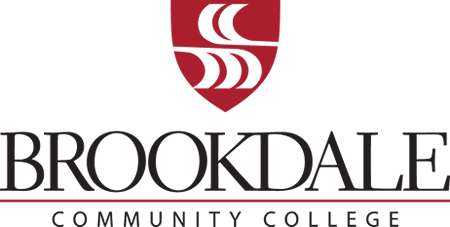0036 - Certified Bookkeeper
Course Description
Like CPAs in accounting, Certified Bookkeepers, seen as the elite of their profession, enjoy benefits from increased credibility to enhanced earning potential. Designed for those with some experience under their belt, this course prepares you for the highly regarded American Institute of Professional Bookkeepers (AIPB) Certified Bookkeeper certification.
Interested in a payment plan option for this class? Call 732-224-2315.
Some course topics include:
- record every financial transaction the company makes
- keep records for a C corp v. S Corporation v. sole proprietorship v. partnership
- record employee—and owner—personal use of the company car as wages
- record inventory at purchase, records changes in value over time, and record sales
- record cash received as income v. unearned income
- record payments as expenses v. prepayments
- file every kind of complicated federal and state tax, employment authorization and other form
Give your bookkeeping career a jump-start with the certification that trains you with the most advanced bookkeeping courses. We prepare you for the national Certified Bookkeeper (CB) exam step by step in adjusting entries, error correction, payroll, depreciation, inventory, and internal controls. See more information about certification here.
Course Outline
To prepare you for the national Certified Bookkeeper exam, the Certified Bookkeeper (CB) program will train you as follows:
- Mastering Adjusting Entries. How to make end-of-month, -quarter, or year adjusting entries and create the trial balance and adjusted trial balance
- Mastering Correction of Accounting Errors. You will learn how to find and correct errors in the general ledger . . . do the monthly bank reconciliation and record the related journal entries. . . use the trial balance to find bookkeeping and accounting errors . . . correct current-period accrual and deferral errors.
- Mastering Payroll. Be able to do a payroll from A to Z, including how to process a W-4 and complete the 941, 940, W-2 and W-3 . . . know who gets overtime pay and who does not . . . understand how and when to deposit withheld taxes and other employment taxes—with instruction on how to complete and file the actual forms.
- Mastering Depreciation. Nail down depreciation for accounting purposes under GAAP, including the straight-line, units-of-production . . . declining balance . . . and sum sum-of-the-years’-digits methods. Carry out depreciation for tax purposes, including how to depreciate equipment v. buildings . . . depreciate the company car v. sole proprietor’s car and separating depreciation of business v. personal use.
- Mastering Inventory. Learn the perpetual and periodic methods for recording inventory. Find out how to cost out inventory and record cost of goods sold using the weighted and moving average, FIFO, LIFO and lower of cost or net realizable value (LCNRV) methods.
- Mastering Internal Controls and Fraud Prevention. Know the perpetual v. periodic methods for recording inventory . . . be able to cost out inventory and record cost of goods sold using the weighted and moving average, FIFO, LIFO and lower of cost or net realizable value (LCNRV) methods.
Notes
What can being a Certified Bookkeeper (CB) do for you?
If you are an in-house bookkeeper, certification can increase your salary and raise your status—or get you a higher-paying bookkeeping job. For example:
- 54% of CBs got a new job, promotion or higher-level responsibilities with their current employer when they become a Certified Bookkeeper (CB)—or got a new job.
- 83% of bookkeepers who get a promotion or higher-level responsibilities say that certification was important to their advancement.
- 81% of CBs who got a new job say that certification was important in obtaining job interviews.
- 59% of CBs received a raise after becoming certified—75.5% of these say certification was important in getting the raise.
If you are a freelance bookkeeper, certification can expand your bookkeeping practice—and increase your fees to current bookkeeping clients: For example:
- 37% of freelance CBs say that being certified helped them gain new clients.
- 48% of freelance CBs report that they have raised their rates since becoming certified.
- 82% of freelance CBs utilize certification to for marketing purposes.
Prerequisites
The Certified Bookkeeper (CB) program is not basic bookkeeping—it does not teach novices to become bookkeepers. To become a Certified Bookkeeper (CB), you must be a working bookkeeper or have 1 year of college accounting or the equivalent.
Candidates must provide evidence of having at least two years’ full-time bookkeeping experience or 3,000 hours part-time equivalent. Although experience requirements must be met before the Document of Certification is awarded, they may be met before or after passing the Certified Bookkeeper examination. Candidates who pass the certification tests first will have three years from the date on which they passed their last test to meet the experience requirement.
